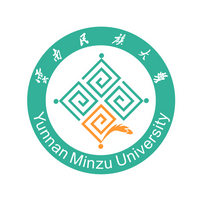Over more than 60 years’ development, YMU has grown into a multi-disciplinary university with multi-leveled and distinctive academic programs, covering 10 disciplines,such as philosophy, economics, law, education, literature, history, natural science, engineering, management and art, and has formed a pattern of discipline and program development by laying stress on both liberal arts and natural sciences, promoting the development of all disciplines and programs while focusing on the development of some prestigious and distinctive programs concerning ethnology, sociology, ethnic languages and literatures, languages and cultures of Southeast Asia and South Asia. We now offer 2 first-level discipline-based doctoral degree programs, 1 joint doctoral degree program, 12 first-level discipline-based master degree programs, 96 second-level discipline-based master degree programs, 9 professional master degree programs and 94 bachelor degree programs. and we have 14 key and characteristic disciplines at provincial level, 8 characteristic programs at national level, 25 key or characteristic programs at provincial level.
Now the university has over 37,140 full-time students, among which 21,760 are graduate students, 2,343 are undergraduates,26 are doctoral students. YMU also has over 500 international students and nearly 12,148 adult students. The number of the university faculty and staff totals 1566, among which 189 are professors, 347 are associate professors. YMU occupies a land area of more than 2,500 mu (about 160 hectares), with 750,000 square meters of floor area. It has 26 schools (divisions), 1 attached primary school and 1 attached middle school,1 affiliated provincial-level research institute (Yunnan Provincial Institute for Ethnic Studies), 1 ethnic museum housing nearly 20,000 pieces of archives, and several prestigious and distinctive research institutes,such as Yunnan Center for Southeast Asian, South Asian and West Asian Studies, Yunnan Province Research Institute of Ethnic Cultures, and Yunnan Center for Tibetan Studies, Poverty Alleviation and Development Research Institute and Big Data Center,6 Academician expert workstation,1 provincial Collaborative Innovation Center-Yunnan Province Ethnic Unity and Progressive Theory and Practical Collaborative Innovation Center in 2011.YMU attaches great importance to scientific research, with advanced research in ethnology, sociology, history and other areas. The university has been granted many awards for teaching and research achievements at provincial and national levels. Some of the research achievements were reported to members of the Politburo Standing Committee.A considerable findings from ethnic theory research, including the “Direct Transition” theory, the “Peaceful Reform” theory, Five Book Series on Ethnic Issues, Ethnics Volume in China’s History Dictionary, the 3rd Volume in China’s Cultural History and so on, not only offer important bases for the Party and government’s stipulation of policies for addressing ethnic problems, but also make great contributions in enriching theories for ethnic issues.
YMU pays close attention to international cooperation and exchanges. The university has received more than 20,000 visitors from over 80 countries or regions, including Queen Elizabeth II of the United Kingdom of Great Britain, Dr. Henry Alfred Kissinger, former Secretary of State of the United States of America, King Harold V of the Kingdom of Norway, and Chairman Ho Chi Minh of the Socialist Republic of Vietnam. As one of the earliest institutions in Yunnan that recruit international students and teach Chinese as a foreign language, YMU began recruiting international students in 1981, graduate students in 1992, and has established cooperation and exchange relations with more than 70 universities or research institutions from over 10 countries including the United States of America, the Kingdom of Norway, Japan, and South Korea.
The vision of YMU is “solidarity and progress”, the motto is “truth seeking and morality promoting, knowledge disseminating and virtue developing,” and the mission is “taking roots in the border area, and serving people in the border area, contributing to ethnic unity and prosperity.” The university alumni have been more than 100,000 now, including most of the first-generation bachelors, masters, doctors, experts and scholars of the 25 indigenous ethnic minorities in Yunnan, as well as the majority of government leaders from ethnic minorities in the 129 counties (especially in the 29 autonomous counties) of the 16 prefectures or cities of Yunnan Province. The university has grown into the cradle of high-level and top-quality professionals for ethnic regions all over the country especially in Southwestern China, an important base for ethnic studies as well as a window of Yunnan to the outside world. In 1999, 2005 and 2009, YMU was three times awarded the honor of “National Model Institution of Ethnic Unity and Progress” by the State Council.




